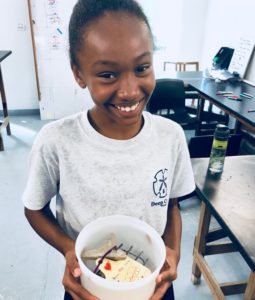Last fall marked the beginning of the Bahamas Coral Innovation Hub! Based out of Cape Eleuthera, the hub aims to upscale coral reef restoration in The Bahamas, develop new technologies, as well as educate, train and engage local Bahamians on the importance of coral conservation. Key hub members include The Nature Conservancy, the Perry Institute for Marine Science (PIMS), SECORE International and the Cape Eleuthera Institute (CEI).
“At no other time in history has the need been greater to protect and restore coral reefs in the Caribbean and around the world,” said Dr. Joseph Pollock, Caribbean Coral Strategy Director at The Nature Conservancy. “The Bahamas Coral Innovation Hub provides an invaluable opportunity to develop the science, disseminate the technologies, and create the momentum — among scientists, conservationists, educators, and the next generation — to turn the tide on coral reef decline.”
Our Goals
As an archipelago of over 700 islands and cays painted in clear, popsicle-blue waters, it’s no secret that coral reefs are vital to Bahamian culture, economy and ecology. Still, live coral cover is lower in The Bahamas than any other Caribbean nation. On average, live corals only cover 10-12 % of this nation’s reefs, according to The Bahamas Coral Reef Report Card 2016. This devastating phenomenon mostly results from widespread coral bleaching events, as well as recent disease outbreak. Over the next five years, The Bahamas Coral Innovation Hub will develop one of the largest coral reef restoration projects in the Caribbean, as well as tackle the following cutting-edge research questions:
1 – How can we use sexual coral recruits and microfragmentation to grow and farm corals on a much larger scale than what we see today?
2 – How can we maintain genetic diversity of our reared coral populations, so that they might be more resilient to climate change?
3- How can we raise awareness about the importance of corals and coral restoration technology? In particular, how can we involve local communities and Bahamian youth in our reef-rebuilding work?
“By working together, we plan to grow and plant thousands of baby corals onto Bahamian coral reefs each year,” said PIMS and CEI coral researcher Lily Haines, “as well as offer experiential education opportunities in coral restoration to hundreds of students in the Bahamas.”
Our Accomplishments So Far

The Bahamas Innovation Hub is off to a swimming start! Last October, researchers from The Hub planted over 1500 “coral seeding units” (a.k.a., homemade, ceramic-based substrates) onto reefs around Eleuthera. Each seeding unit hosted between one and 20 baby corals from three different species: 1) Mountainous Star Coral (Orbicella faveolata), 2) Boulder Star Coral (Orbicella annularis) and 3) Symmetrical Brain Coral (Pseudodiploria strigosa). In other words, thousands of key reef-building corals have been out-planted in a matter of months. Coral researchers Lily Haines (PIMS and CEI) and John Parkinson (SECORE International) will visit the baby corals every few months to track their survival and growth on the reef.
“The combined capacity of the different partners and merging resources will lend ‘critical mass’ to various coral restoration efforts in Eleuthera,” said Dr. Margaret Miller, Research Director at SECORE International. “These capacities include temperature-controlled wet-lab facilities for testing coral thermal tolerance, field operations, expertise in coral ecological and genetics research, and SECORE’s special interest in developing technology and practices in upscaling larval coral restoration.”
What’s more, 32 students from southern Eleuthera’s Deep Creek Middle School visited the Coral Innovation Hub last fall to learn to identify common Caribbean corals, as well as understand the importance of coral conservation. Each student had the opportunity to name and plant his or her own small fragment of mustard hill coral – a bright-yellow mounding species – onto local coral patch reefs around the island. Their enthusiasm in the ocean was contagious and we can’t wait to have these students join us on campus again soon!
“Coral should be treated like people. Just like humans are important to the earth, coral is important to the sea. I’m excited to have become a patch reef protector.” – Lynette, DCMS Grade 8 student
—–Article by: Lily Haines—–

